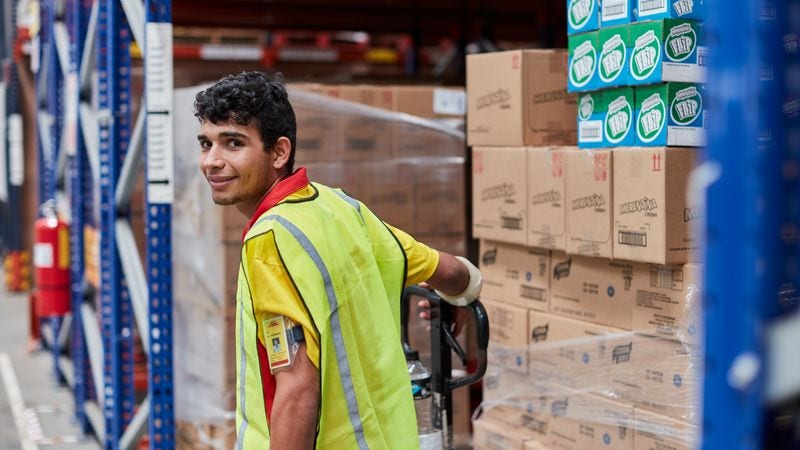
India's manufacturing sector has undergone significant transformation in recent years, transitioning from a reliance on traditional exports like textiles and gems to a focus on more technology-driven products such as engineering goods, chemicals, and electronics. This shift is part of a broader strategy under the "Make in India" initiative, which aims to position India as a global manufacturing hub. Launched ten years ago, "Make in India" seeks to empower Indian manufacturing companies, attract foreign investment, promote innovation, and create jobs, thereby enhancing the manufacturing sector's contribution to India's GDP.
At the heart of this initiative are small and medium-sized enterprises (SMEs), which play a crucial role in driving economic growth and innovation. SMEs are characterised by their agility and ability to adapt quickly to market changes, making them indispensable in achieving the objectives of the "Make in India" initiative. This article explores the various aspects of "Make in India," the challenges and opportunities it presents for SMEs, and how these enterprises can leverage this initiative to thrive in India's manufacturing landscape.
What is “Make in India”?
The “Make in India” programme is a flagship initiative of the Government of India, launched in September 2014 by Prime Minister Narendra Modi. The primary goal of this initiative is to transform India into a global design and manufacturing hub. It aims to attract foreign investment, foster innovation, enhance skill development, protect intellectual property, and build best-in-class manufacturing infrastructure.
The initiative targets 25 sectors, including automobiles, textiles, electronics, pharmaceuticals, and food processing, among others. By focusing on these key sectors, "Make in India" seeks to increase the share of manufacturing in the country's GDP from the current 16% to 25% by 2025, and create 100 million new jobs.
For SMEs, the initiative offers numerous benefits. It provides a conducive environment for starting and expanding businesses, simplifies regulatory processes, and offers financial incentives and support. The government has also launched several schemes and policies under "Make in India" to assist SMEs in upgrading technology, improving product quality, and accessing global markets.
Navigating challenges: SMEs in India’s manufacturing landscape
Despite the numerous opportunities presented by "Make in India," SMEs in India face several challenges that can hinder their growth and ability to compete on a global scale. One of the primary challenges is navigating the complex regulatory landscape. SMEs often struggle with cumbersome procedures and regulatory compliance, which can be time-consuming and costly.
Financing is another significant hurdle. While there are various government schemes and initiatives aimed at providing financial support to SMEs, accessing these funds can be challenging due to stringent eligibility criteria and bureaucratic delays. Moreover, many SMEs lack the necessary collateral to secure loans from traditional financial institutions.
The lack of modern technology and infrastructure is also a major barrier. Many SMEs operate with outdated machinery and processes, limiting their productivity and product quality. Additionally, inadequate infrastructure, such as unreliable power supply and poor transportation networks, can further impede their operations.
SMEs also often lack exclusive marketing platforms and distribution networks, making it difficult for them to reach new markets and expand their customer base. The need for skilled labour is another pressing issue, as many SMEs struggle to find and retain workers with the necessary skills and expertise to operate advanced machinery and implement new technologies.
Key opportunities for SMEs under “Make in India”
Despite these challenges, there are many advantages of the "Make in India" initiative for SMEs. While the ease of doing business with “Make in India” has changed, one of the most notable opportunities it has brought is access to new markets. By participating in global value chains, SMEs can expand their customer base and increase their sales. The government has introduced various schemes and programs to facilitate market access, including trade fairs, buyer-seller meets, and online marketing platforms.
Investment opportunities are also plentiful under "Make in India." The government offers a range of financial incentives, such as tax exemptions, subsidies, and grants, to encourage SMEs to invest in new technologies and expand their operations. Additionally, various schemes provide credit support and financing options tailored specifically for SMEs, helping them overcome the barriers to accessing capital.
Technological advancements are another area where SMEs can benefit. The government promotes technology adoption and innovation through initiatives like the Technology Upgradation Fund Scheme (TUFS) and the Micro, Small, and Medium Enterprises (MSME) Innovation Fund. These programmes help SMEs upgrade their machinery, improve product quality, and enhance their competitiveness in the global market.
The "Make in India" initiative has also significantly boosted India’s exports in various industries, with some of India’s major exports including automobiles and auto components, textiles and garments, pharmaceuticals, chemicals, engineering goods, electronics, food and agro products, and jewelry. Key export destinations for these products include the United States, European Union, Middle East, China, and other Asian countries.
Above all, the introduction of this programme, along with the “Make in India” products that it brings, emphasises quality standards and certification, which are crucial for SMEs looking to enter international markets. In this regard, the government also offers support for obtaining quality certifications, such as ISO and CE marks, which can enhance the credibility and marketability of SME products.
How to obtain the “Make in India” certificate
Obtaining the "Make in India" certificate can be a strategic move for SMEs. It not only validates their commitment to manufacturing within India but also provides various benefits, including preferential treatment in public procurement and access to government incentives.
For successful “Make in India” registration, SMEs must meet certain eligibility criteria. These include having a valid business registration in India, conducting manufacturing operations within the country, and adhering to prescribed quality standards. SMEs must also ensure that a significant portion of their production processes are carried out in India.
The application process for the "Make in India" certificate involves submitting various documents, such as the incorporation certificate, proof of manufacturing activities, and compliance with quality standards. SMEs can apply for the certificate through the official "Make in India" portal or relevant government departments. The process typically includes the payment of a nominal fee and may involve an on-site inspection to verify compliance.
Future outlook: SMEs and the path forward
Looking ahead, SMEs have a crucial role to play in India's manufacturing sector, particularly under the "Make in India" framework. As the initiative continues to evolve, there will be increased opportunities for SMEs to engage in high-value manufacturing and innovation. The government's focus on digital transformation and Industry 4.0 technologies, such as automation, artificial intelligence, and the Internet of Things (IoT), presents a new frontier for SMEs to explore.
To capitalise on these opportunities, SMEs must invest in skill development and capacity building. Training programmes and partnerships with educational institutions can help SMEs upskill their workforce and adopt new technologies. Additionally, collaboration with research institutions and larger enterprises can drive innovation and access to cutting-edge technologies.
SMEs should also focus on building strong brand identities and marketing their products effectively. Leveraging digital marketing tools and e-commerce platforms can help SMEs reach a wider audience and enhance their market presence.
Expand your business overseas with DHL Express

The "Make in India" initiative is crucial for SMEs in the manufacturing sector, as it addresses regulatory challenges and provides government support, enabling these businesses to enhance competitiveness and contribute to India's economic growth, while also boosting India’s exports. DHL Express, a global leader in logistics along with our own supply chain solutions, offers specialised services tailored to the needs of SMEs.
These services include affordable and advanced solutions for the transportation and export of equipment and manufactured goods, ensuring seamless logistics support. Additionally, DHL Express plays a strategic role in helping SMEs navigate complex international trade regulations, facilitating their entry into new markets and enabling long-term growth and success in the global marketplace.
To begin your journey with DHL Express, create a business account with us today, or reach out to our customer service team to find out more!


















